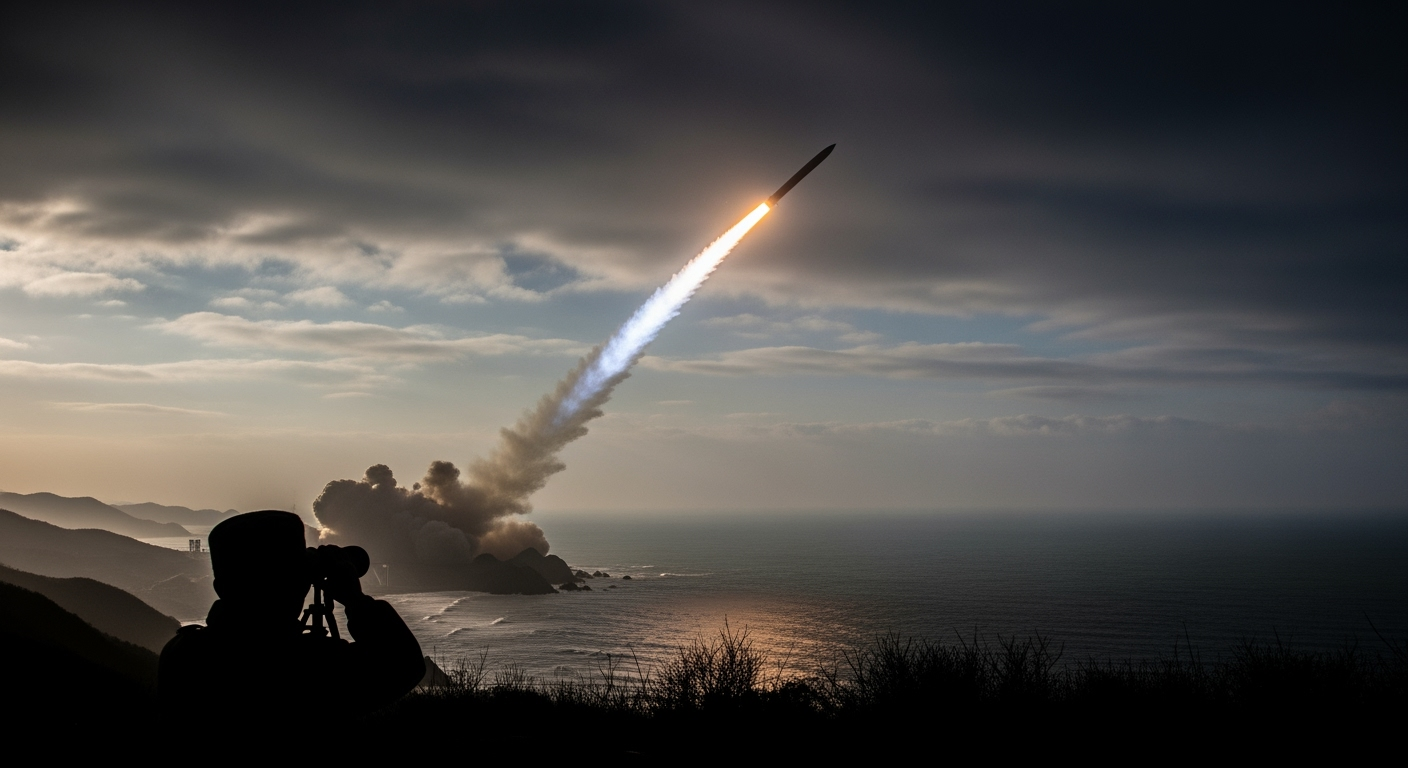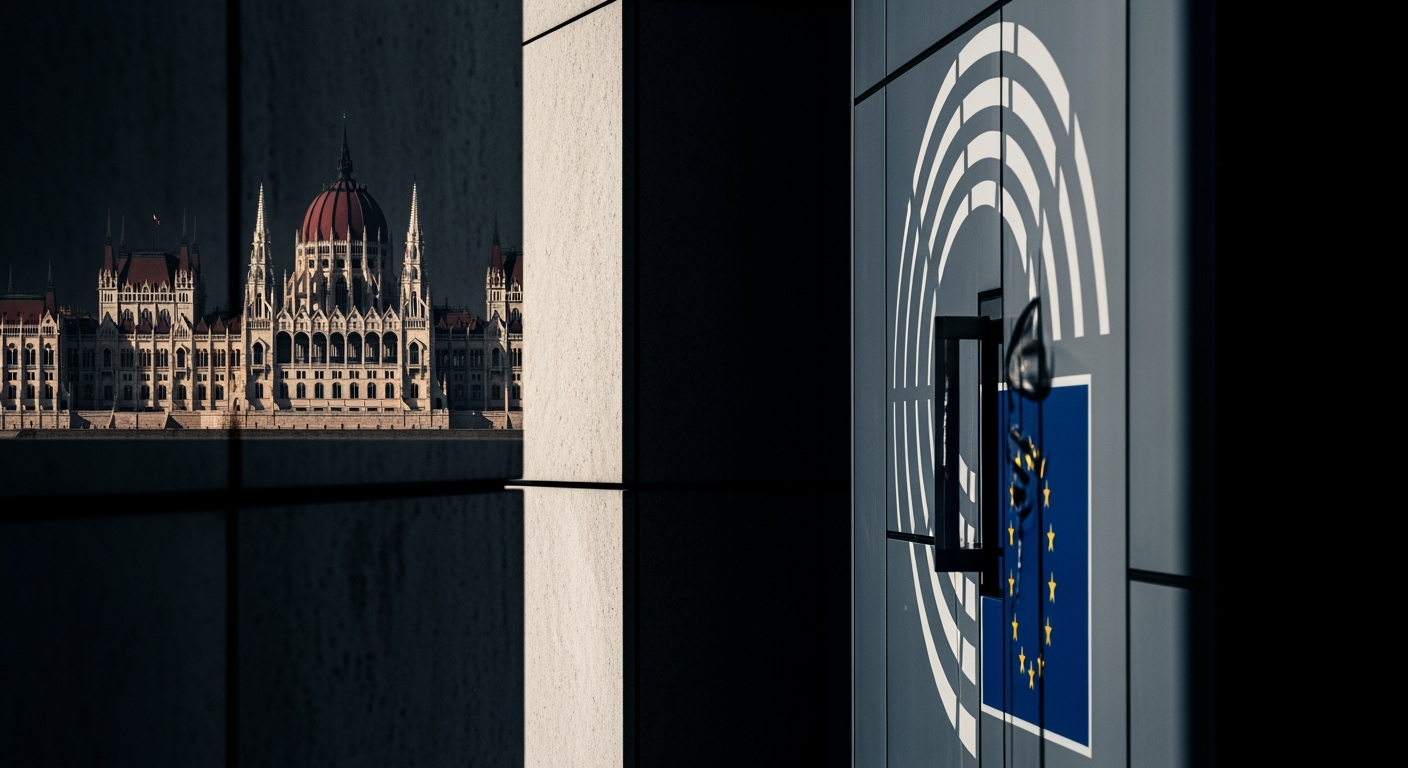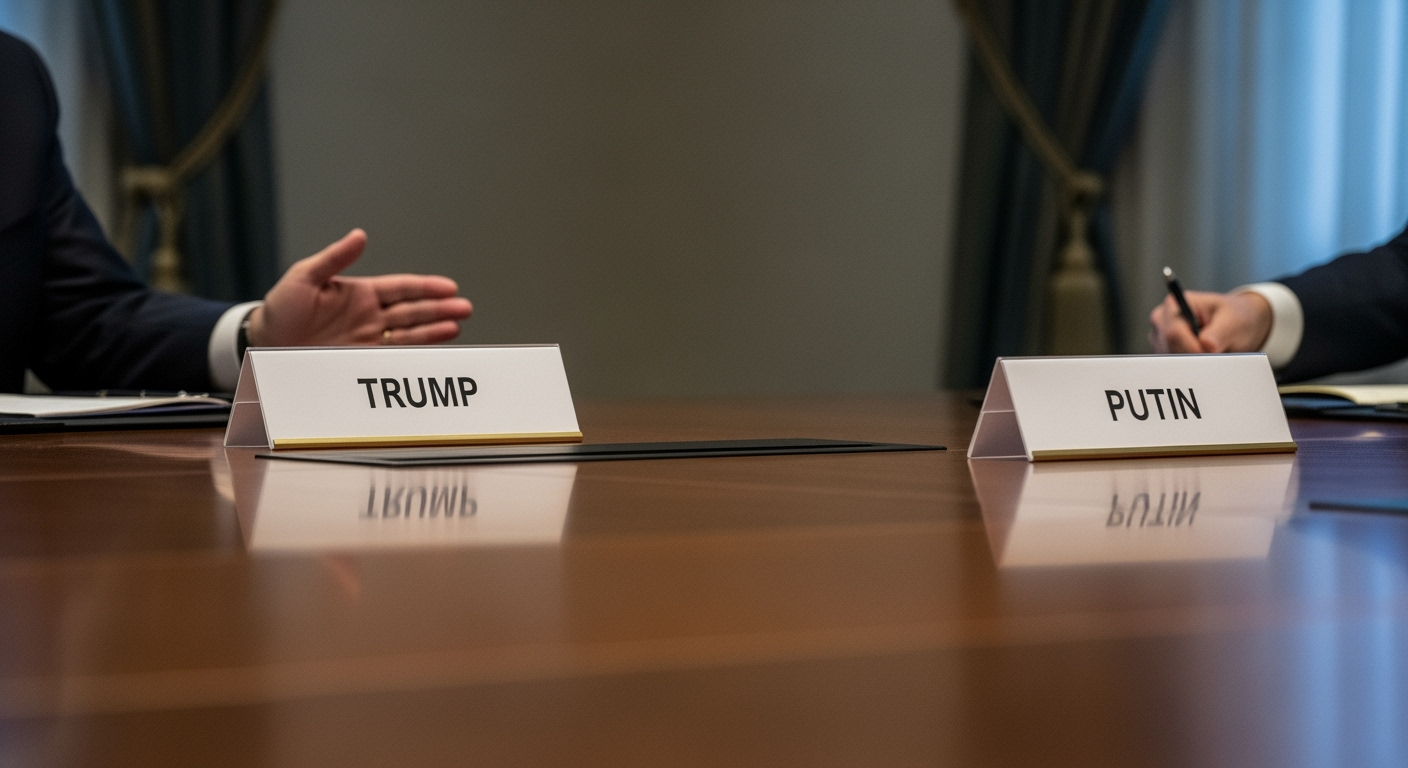Related Articles

North Korea Fires Ballistic Missile Eastward, Heightening Tensions Ahead of Asia-Pacific Summit

Vilnius Airport Grounded as Mysterious Balloons Prompt Overnight Closure





WASHINGTON – A highly anticipated meeting between U.S. President Donald Trump and Russian President Vladimir Putin will not occur in the immediate future, White House officials confirmed Tuesday, signaling a significant setback in efforts to de-escalate tensions and broker a peace deal for the ongoing conflict in Ukraine. The announcement follows a period of intense diplomatic maneuvering and conflicting signals, leaving the prospects for a high-level summit uncertain as both Washington and Moscow appear to hold fundamentally divergent views on the path to peace.
The White House statement, which indicated "no plans" for an imminent summit, arrived just days after President Trump himself announced he expected to meet Putin within weeks in Budapest, Hungary, to discuss an end to the war in Ukraine. This proposed meeting was intended to follow a preparatory session between U.S. Secretary of State Marco Rubio and Russian Foreign Minister Sergey Lavrov. However, that in-person meeting was subsequently deemed "not necessary" after a "productive call" between the two diplomats, a senior White House official stated. The abrupt shift underscores the profound complexities and persistent disagreements that continue to plague U.S.-Russia relations, particularly concerning the conflict in Eastern Europe.
President Trump had recently articulated a renewed focus on resolving the nearly four-year-old conflict in Ukraine, suggesting he could bring about a swift end to hostilities. Following a phone conversation with President Putin last week, Trump had publicly expressed optimism, announcing on social media that he anticipated meeting the Russian leader in Budapest. This prospective summit would have marked their second face-to-face encounter since Trump's return to office in January, the first having taken place in Anchorage, Alaska, in August 2025. That initial summit, however, yielded no tangible results, failing to advance negotiations despite discussions centered on the Russo-Ukrainian War.
The preparatory steps for the now-delayed Budapest summit were expected to involve high-level diplomatic engagement, led by Secretary Rubio for the United States and Foreign Minister Lavrov for Russia. However, the White House's Tuesday announcement effectively put these plans on hold. While the phone call between Rubio and Lavrov was characterized as "productive," the decision against an in-person meeting between the foreign ministers, and subsequently the leaders themselves, suggests that foundational differences remain too significant to bridge in the short term.
Concurrently, Moscow has tempered expectations regarding a quick summit. Kremlin spokesperson Dmitry Peskov stated that "serious preparation" is needed for any meeting between the two leaders and that no "precise timeframe" had been established. Peskov emphasized that a summit "cannot be postponed" as a specific date had never been set, clarifying that what was initially announced was merely a proposal. This stance implies a more deliberate and cautious approach from the Russian side, contrasting with the more immediate timeline suggested by President Trump.
The Kremlin's emphasis on thorough preparation likely reflects Russia's entrenched position on the terms for peace in Ukraine. Moscow has consistently rejected calls for a ceasefire along current front lines, viewing such a move as a temporary halt rather than a path to "long-term, sustainable peace." Russian Foreign Minister Lavrov explicitly stated that Trump's demand for an "immediate ceasefire" contradicted understandings reached during their August summit in Alaska. Russia maintains that any resolution must address the "root causes of this conflict," which includes ensuring Ukraine's "nonaligned, nonnuclear status" and refraining from NATO membership. Furthermore, Moscow's position suggests a continued desire for significant territorial concessions from Ukraine, arguing that merely freezing the conflict would leave a "large part of Ukraine under Nazi rule."
The primary sticking point appears to be the fundamentally different approaches to ending the war in Ukraine. President Trump has advocated for a ceasefire along the existing "battle line" to initiate negotiations, stating, "Let it be cut the way it is." This perspective contrasts sharply with Moscow's insistence on conditions that would likely involve substantial territorial concessions from Kyiv. Ukrainian President Volodymyr Zelenskyy, who met with President Trump last week, has consistently rejected the prospect of ceding any Russian-occupied territory and has urged international pressure on Russia.
European allies have also expressed concerns about any potential U.S.-Russia agreement that might not serve Ukraine's interests. Leaders from Britain, France, Germany, Italy, and Poland, alongside top European Union officials, issued a joint statement supporting Trump's call for an immediate ceasefire along the current line of contact, but also voiced skepticism about Russia's sincerity in seeking a peaceful resolution. They accused Russia of employing "stalling tactics" that undermine peace efforts and reiterated their support for Kyiv. This united European front highlights the delicate balance the United States must strike in its diplomatic overtures with Russia, ensuring that any proposed solution does not alienate key allies or compromise Ukraine's sovereignty.
The postponement of the Trump-Putin summit underscores the significant hurdles in achieving a diplomatic breakthrough in the Russo-Ukrainian War. The current impasse suggests that the gap between U.S. and Russian expectations for a resolution remains wide. While both sides indicate a willingness for dialogue, the terms under which such discussions would proceed appear to be a major point of contention. The August summit in Alaska, which was President Putin's first visit to a Western country since the 2022 invasion of Ukraine, also concluded without a clear pathway forward, illustrating the deep-seated nature of these disagreements.
For President Trump, who has consistently championed his ability to broker peace, this delay presents a challenge to his stated diplomatic ambitions. His administration's decision to forgo an immediate high-level meeting indicates an acknowledgment of the unreadiness of the ground for a productive summit. The focus now shifts back to lower-level diplomatic contacts, such as the telephone exchanges between Secretary Rubio and Foreign Minister Lavrov, to ascertain if and when a more substantive face-to-face encounter between the two leaders might become viable. The path to a genuine resolution remains fraught with difficulty, requiring meticulous preparation and a willingness from both sides to align on foundational principles—conditions that are evidently not yet met.